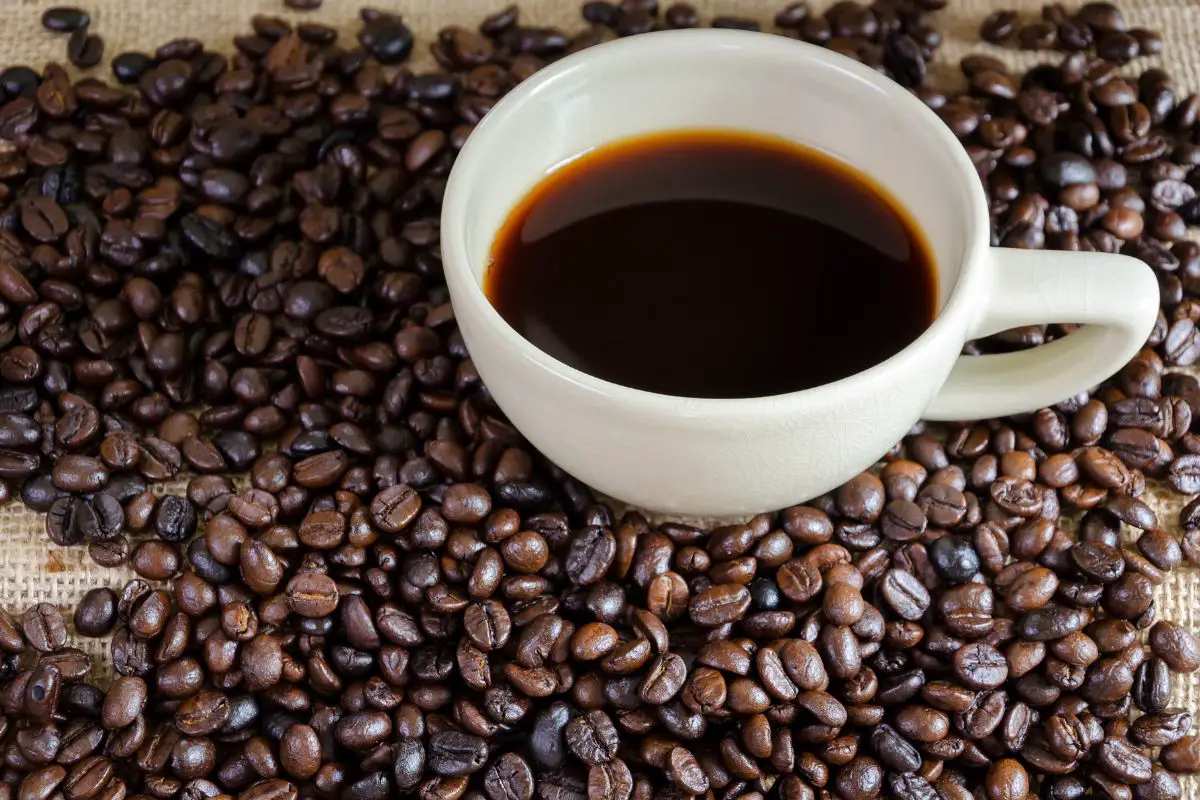Decaffeinated (decaf) coffee refers to coffee whose caffeine content has been removed significantly. Caffeine removal is done using a variety of methods, either using water filtration or chemically. Regardless, the decaffeination methods use the same principle.

Initially, decaf coffee was avoided by some people due to the chemicals used in decaffeination. However, there have been improvements in these methods. Today, there are chemical-free decaffeination methods used such as the Swiss Water Process (SWP).
The SWP method is gentler on coffee beans and is ideal for removing caffeine from organic coffee beans. It does not affect the volatile aroma compounds in coffee beans. However, it alters the color of coffee beans. But is decaf coffee darker than regular coffee beans? Keep reading to find out.
Why Does Decaf Coffee Look Darker than Regular Coffee?
Decaf coffee indeed looks darker than regular coffee beans, especially when decaffeination is done using the Swiss Water Process. While roasted coffee beans differ in color from light brown to rich, dark brown, decaf coffee beans are very dark brown. You might think that the beans were over-roasted, but that is not the case.
Is it not surprising to notice such a variation in the color of decaf coffee beans? You may be concerned about their color, especially when you are used to brewing with light roasts. Essentially, it is the SWP decaffeination process that alters the color of the coffee beans. It is not a result of over-roasting the beans.
SWP decaffeination aims to remove caffeine from the beans gently until they are 99.9 percent caffeine-free. At the same time, this decaffeination technique ensures the beans retain their distinct flavor and origin characteristics.
The SWP method uses water instead of chemicals to remove caffeine. Thus, the flavor profile of the coffee beans remains intact. Although the flavors are not affected, the bean changes in color. Essentially, the SWP technique weakens the outer surface of coffee beans. Thus, the decaf beans pick up color more quickly than regular beans when roasting.
Should You Roast Decaf Beans Differently?
Decaf coffee beans obtained using the SWP process require special roasting. Essentially, roasting coffee beans requires you to get the temperature and timing right. You watch the color as it darkens and listen for the cracks during the Maillard reaction.
However, roasting decaf coffee beans is a little different. The reason is that the color change when roasting decaf coffee beans is not very distinct. Also, the cracks are almost silent. Unfortunately, some roasters make the mistake of roasting decaf beans using the regular roasting procedure.
Since all decaf coffee beans obtained using the SWP method look dark roasted, you may assume they taste like regular dark roast. However, that is not the case. They vary in taste depending on the roast level regardless of their dark look. Thus, if you buy light roast decaf beans but they look dark, do not worry since you truly have a light roast. You will still distinguish them from regular coffee based on their taste.
It is only that decaf coffee beans shift color from green to very dark within a short period. Light roast decaf will still have the same flavor profile as regular light roast coffee despite looking darker. Decaf beans produce the first crack after they are already dark and look somewhat wrinkled, unlike the smooth appearance of true dark roast coffee.
Does The Decaffeination Process Affect Flavor?
Decaf coffee obtained using the Swiss Water Process has the same flavor and aroma as regular coffee. The reason is that it is a chemical-free process that works gently on coffee beans. However, decaffeination methods that use chemicals slightly alter the flavor profile of coffee beans. The chemicals introduce foreign tastes to the coffee.